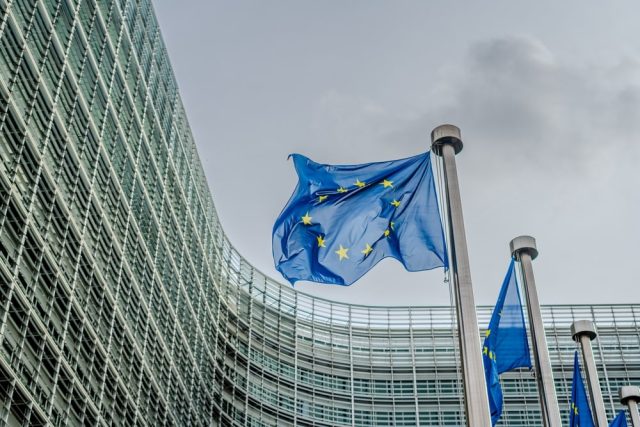
While Ursula von der Leyen celebrates the EU’s steadfast march toward climate neutrality by 2050, conservatives warn that Europe’s green ambitions risk sacrificing economic stability, sovereignty, and social cohesion at the altar of ideology.
At the EU Covenant of Mayors 2025 ceremony, European Commission President Ursula von der Leyen reaffirmed her commitment to making Europe the world’s first climate-neutral continent by 2050. Her speech, rich in optimism and self-congratulation, portrayed a continent united behind the “green transition”—a transformation centred on people, communities, and sustainable growth. Yet beneath the confident rhetoric lies a deeper unease shared by millions of Europeans: is Brussels’ climate idealism sustainable, or is it pushing Europe toward economic and social imbalance?
For many conservatives across Europe, von der Leyen’s declaration that “Europe is staying the course” sounds less like a promise and more like a warning. The European Green Deal—hailed as the Union’s crowning achievement—has come to symbolize the technocratic excesses of EU policymaking: vast in ambition, thin on realism, and blind to the growing costs borne by ordinary citizens.
The Cost of a Green Utopia
Von der Leyen’s insistence that the EU is “on the right path to meeting our 2030 targets” masks a troubling reality. Yes, emissions are down, but at what cost? Energy prices have soared, industrial competitiveness has faltered, and households across the continent are struggling to absorb the financial shock of mandatory eco-standards and carbon taxes.
The 55% emissions reduction target by 2030 may please environmental activists, but it risks hollowing out Europe’s manufacturing base. Factories are closing or relocating abroad, where energy is cheaper and regulations lighter. The very workers Brussels claims to defend—those in steel, coal, and automotive sectors—are being left behind in the name of “progress.”
Conservatives argue that the European Green Deal has become a moral crusade rather than a pragmatic policy. Instead of balancing environmental responsibility with economic realism, the EU leadership seems intent on imposing a one-size-fits-all model across 27 diverse economies. What works for wealthy urban elites in Brussels or Berlin does not necessarily suit farmers in Poland or small business owners in Italy.
A Budget Driven by Ideology
Von der Leyen proudly announced that 35% of the EU’s next financial framework will be devoted to climate and nature projects. On paper, this sounds visionary. In practice, it represents an enormous transfer of taxpayer money into a political experiment whose returns are uncertain at best.
While innovation in clean energy and green technology is vital, conservatives warn that the current approach is distorting the market, favouring subsidized industries over free competition. The obsession with “green” investment risks creating a dependency culture, where success is defined not by efficiency or merit but by alignment with Brussels’ environmental orthodoxy.
Moreover, this “green budgeting” comes at a time when Europe faces unprecedented challenges: mass migration, security threats, and declining economic growth. Should climate spending really outweigh defence and border control—the very foundations of national sovereignty?
The People Left Behind
Von der Leyen insists that the green transition is “centred on people and communities.” Yet from Paris to Prague, from Dutch farmers to German truckers, popular resistance is mounting. The so-called “Just Transition Mechanism” may funnel billions toward affected regions, but no amount of subsidies can replace the dignity of lost work or the pride of self-reliance.
Across Europe, ordinary citizens are paying for elite virtue signalling. They are told to abandon affordable cars for electric vehicles they cannot afford, to replace gas boilers with expensive heat pumps, and to accept higher food prices in the name of “sustainability.” The green transition, once a symbol of unity, has become a dividing line between the ruling class and the working majority.
Reclaiming Balance and Common Sense
Europe’s conservatives do not deny the importance of environmental stewardship. They understand that protecting the planet is a moral duty. But they also insist that climate policy must serve the people—not the other way around.
A truly sustainable Europe is one that preserves jobs, respects national sovereignty, and defends competitiveness while pursuing realistic environmental goals. Instead of grandiose top-down mandates, the EU should empower nations to choose their own paths toward cleaner economies—without punishing those who rely on traditional industries.
As von der Leyen prepares to unveil a new “urban climate agenda,” conservatives urge Brussels to remember that cities are not laboratories for ideology. They are homes to real families, workers, and businesses that cannot thrive under endless regulation and taxation.
A Call for Pragmatic Leadership
Von der Leyen’s speech projected confidence and continuity, but confidence alone does not pay energy bills or protect livelihoods. Europe’s conservative movements are calling for a course correction—a reassertion of economic realism, democratic accountability, and respect for national priorities.
If Europe is truly to “lead the world,” it must first learn to lead itself wisely. The dream of a climate-neutral continent is noble, but not if it comes at the expense of Europe’s prosperity, stability, and freedom. The challenge ahead is not to double down on ideology—but to restore balance, sovereignty, and common sense to Europe’s green future.



 Subscribe
Subscribe